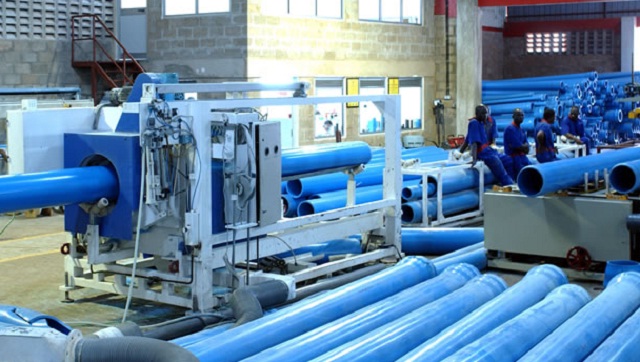
Friedrich-Ebert-Stiftung offers suggestions ahead of new policy launch
Kampala, Uganda | JULIUS BUSINGE | Policy documents alone will not industrialise Uganda. The government should lead this agenda by acting and learning from the mistakes and failures. Also industrial development should become a political priority in action and funding, not in talking and policy papers.
That was the summary of issues that emerged from the half day meeting organised by the Office of the President and Friedrich-Ebert-Stiftung Uganda office at the Kampala Serena Hotel on Nov.20.
Attended by close to 200 people from government, private sector, academia and research and development partners, the meeting themed ‘an inclusive industrial policy review dialogue – to inform policy development’deliberated on the country’s industrial policy journey and plans ahead.
It comes as government through the Ministry of Trade, Industry and Cooperatives is in the final stages of completing the review of the 10-year National Industrial Development Policy building on the old one whose implementation stood at only 30%.
FES’ Resident Representative for Uganda, Mareike Le Pelley, said the policy review processis vital for Uganda’s development as it will connect with key local, regional and international development goals.
This includes among others; Uganda Vision 2040 – where the government seeks to reform and optimise the industrial structure through establishing a modern industrial system, the National Development Plan II that prioritises the development of the industrial sector, Sustainable Development Goal No.9 that calls for the promotion of inclusive and sustainable industrialisation and the East African Community Industrialisation Policy 2012 – 2032.
The organisers also sought to use the meeting to find solutions to sector challenges including; poor coordination, planning and budgeting processes, lack of competences within the relevant institutions, poor communication, corruption, bureaucracy, low levels of technology, limited financial resources and infrastructural bottlenecks.
FES recommendations
The Issues paper that was drafted by FES and the Makerere University Business School economics lecturer,Ramathan Ggoobi, say there is need to go beyond facilitation of industrialisation by ensuring capitalisation of Uganda Development Corporation by the state and giving it full support to incubate industries.
It adds that investments should be in strategic industries such as textile and leather, iron and steel, cement, petroleum, chemical, pharmaceutical and metal industries.
They say these industries are strategic in the sense that they act as stimuli to economic transformation due to their importance in economic development, linkage with other industries, and ability to create productive jobs.
FES also calls on government to harmonise the National Industrial Development Policy (NIDP) with other policies and strengthen the monitoring framework. Also revise the key national policies, including but not limited to: Investment Code, 1991; National Trade Policy, 2007; National Land Policy, 2013; and National Agricultural Policy, 2013 among others to refocus them towards development of home-grown industrialisation.
They suggest the need to re-orient the macro-economic framework (fiscal, monetary, exchange rate, capital account and labour market policies) towards supporting the country’s industrialisation agenda.
“The lending and exchange rates that that have consistently remained high should be reduced to increase capital to manufacturing firms and reduce the cost of importing industrial raw materials,” the paper says in part, adding that perpetual restrictive monetary and fiscal policies at a time of industrial establishment and upgrading should be avoided since they tend to reduce the growth of domestic demand and production.
Government should also increase public investment to crowd-in private investments in addition to developing guidelines for accessing industrial development incentives such as tax exemption schemes and duty-drawbacks for manufacturers.
To successfully implement agro-based industrialisation, the issues paper says that government should holistically invest in smallholder farmers along the entire value chain.
This is through increasing the agriculture budget to 10% and organise the smallholder farmers into cooperatives.
The other area is on legislating and enforcing competition and anti-trust laws to promote and regulate competition among the private sector players and ensuring that other sectors like energy, oil and gas and agriculture are complemented.
The policy should also consider the promotion of exports while satisfying the local demand in addition to promoting local content through encouraging equity and shareholding.
President’s office ready
Wills Bashasha, the acting secretary in the Office of the President welcomed the recommendations.
He said the 10-year year industrial policy will provide the strategic direction for industrial development in Uganda and bring about the required transformation that will propel Uganda to a modern and prosperous country by 2040.
He added that the policy will build on to what the old one achieved especially on the legal and policy framework where a number of bills and policies were developed to guide its implementation.
He outlined these as: the National SME Policy 2015, National Grain Trade Policy 2015 and Packaged Water Policy, 2015 as well as the passing of Uganda National Bureau of Standards (UNBS) Act (Amendment 2013) and Uganda Development Corporation (UDC) Act 2015.
Bwanga George, the head of infrastructure, industry and physical planning at National Planning Authority said they would support the implementation process of the policy so that the country can achieve GDP per capita of US$9,500 embedded in Vision 2040 and industrial sector contribution to GDP would increase from the current around 9% to 31% by 2040.
 The Independent Uganda: You get the Truth we Pay the Price
The Independent Uganda: You get the Truth we Pay the Price


